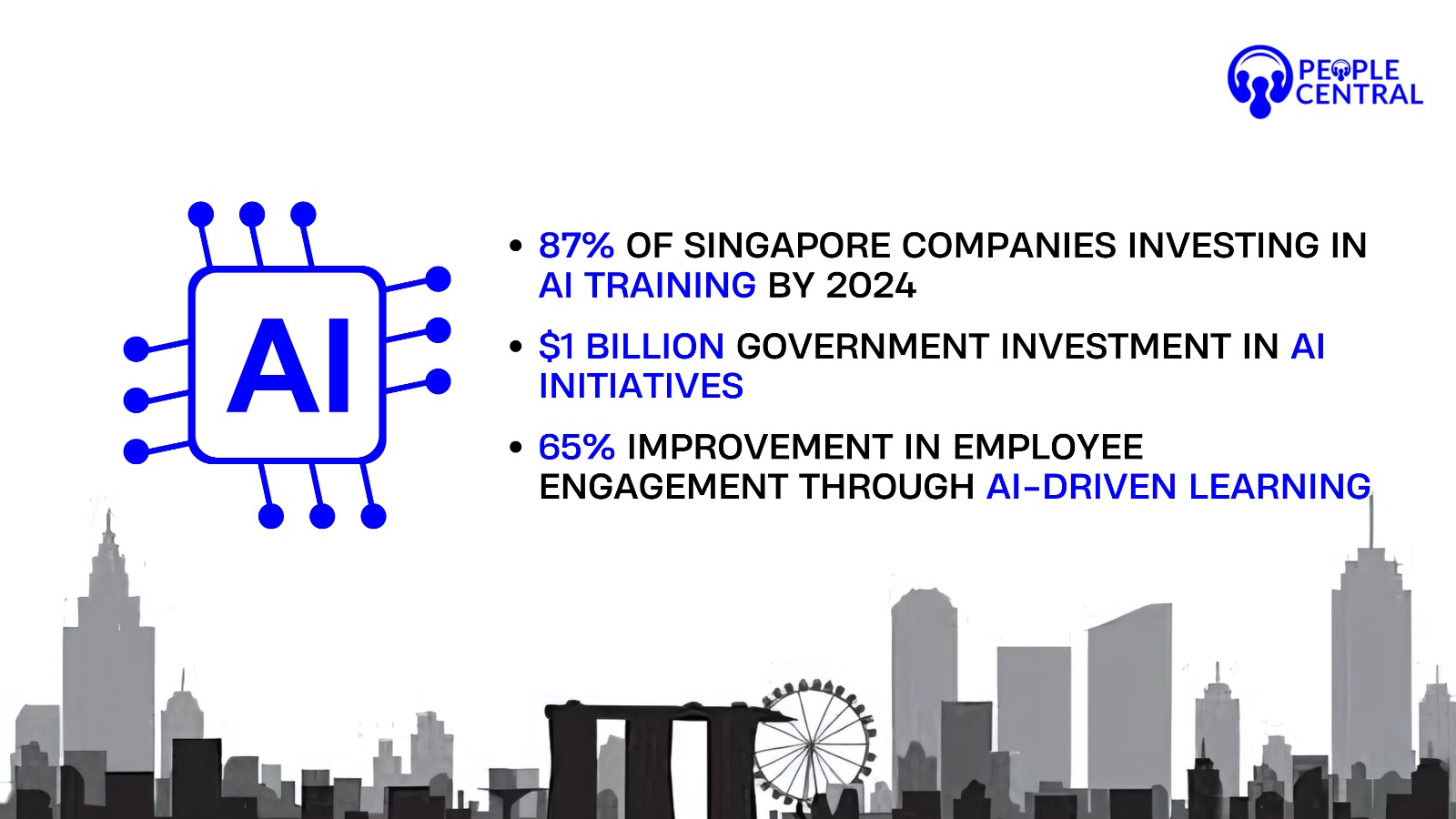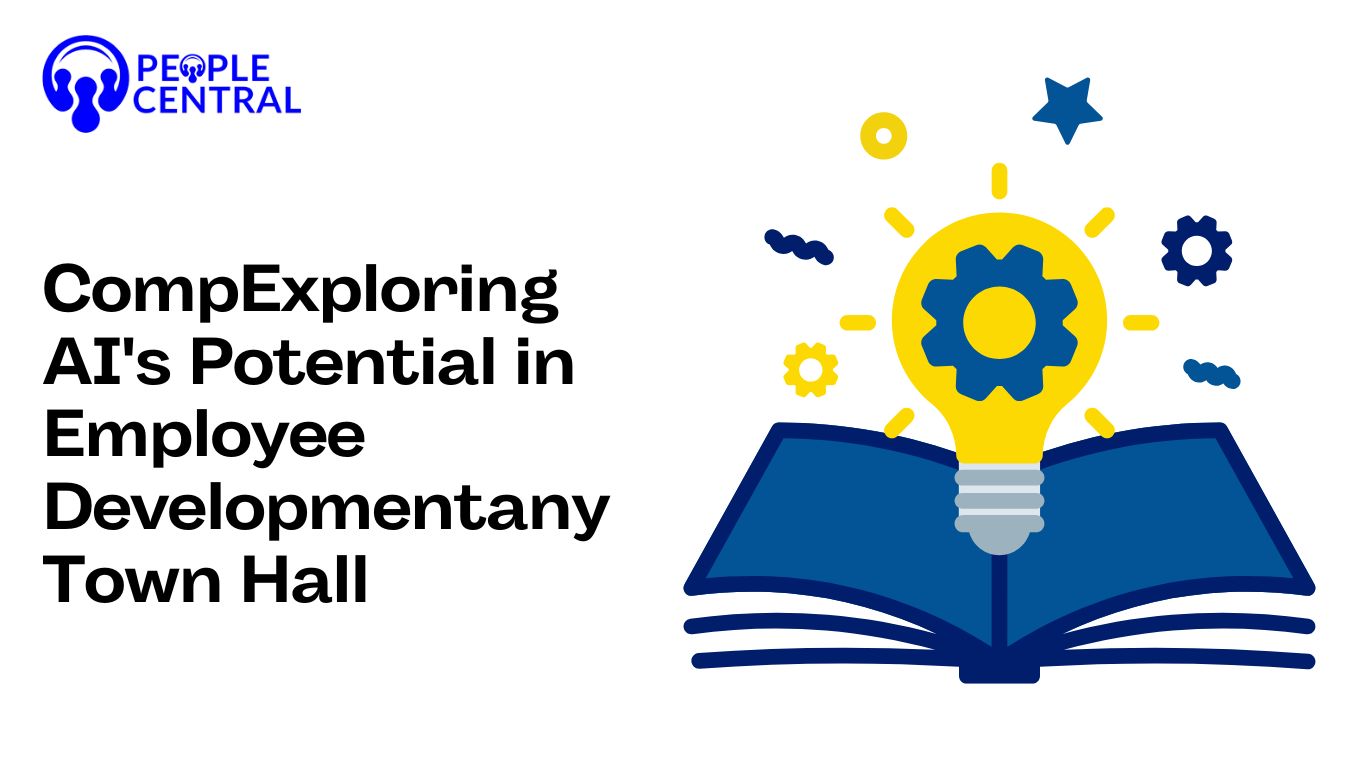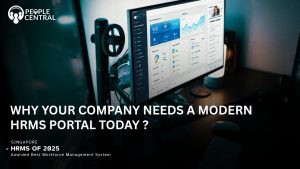The workplace in Singapore, a high-tech hub in Southeast Asia, is currently experiencing a profound upheaval in its approach to employee training and development. Singapore, ranked among the world’s competitive economies, is embracing AI in training and development not for fashion, but rather as an eminent priority to sustain competitiveness in the globalized market.
The Singapore Context: Why AI Matters
With Singapore keenly driving forward its Smart Nation vision, an ideal ecosystem has taken root for launching AI-specific training solutions. In an environment supported by government funding of around $1 billion for various AI initiatives, organizations are encouraging technological innovation in the area of workplace learning.

AI In Training: A New Curve Added To Learning Experiences
In fact, gone is the one-size-fits-all program concept. Instead, today’s AI-driven platforms are creating individualized learning routes that adjust according to each employee’s pace, style, and preferences. For example, DBS Bank, Singapore’s leading bank, has adopted an AI-led learning portal that monitors employees’ learning patterns and recommends suitable courses and materials.
Personalized Learning Pathways
AI allows for the individualization of training, based on a history of personal learning patterns. Using special algorithms, these systems can:
- Establish Learning Relaying, In Real-Time
- Identify Learning Gaps
- Locate Relevant Content
- Adjust to Learning Difficulty Autonomously
- Provide Quick Feedback
Also Read : What Are The Benefits of HR Software in 2025?
AI In Training: Applications in Singapore
Virtual Mentoring and Coaching
More and more businesses are using AI-powered chatbots for support since these chatbots act as learning assistants open 24/7. These virtual mentors can always answer questions and guide and assist employees whenever they want. Multinational corporations like IBM Singapore lead the way with their AI coaching platforms.
Skills Gap Analysis
With an unprecedented accuracy rate, AI systems assist human resource departments in identifying organizational skills gaps. The systems make predictions on what future skills will be required and suggest training protocols following the analysis of performance data, project outcomes, and industry trends.
The Human Touch In AI Driven Training
To make the training delivery a bit more okay, AI shall come to revolutionize one. Singapore views AI implementation as more oriented toward the crucial fusion of technological innovation and human wisdom. Training professionals are evolving into learning experience designers, concerned with:
- Leveraging digital learning to create emotional connections
- Facilitating peer-to-peer learning communities
- Providing contextual guidance
- Catering to cultural sensibilities in AI-driven content
Measuring Impact and ROI
AI, for the development of the employee not least, was one of the major contributions when it was introduced: measurement of training efficiency. AI analytics, in Singapore, is now being used by the organizations to:
- Track behavioral changes post-training
- Measure productivity improvements
- Calculate return on training investment
- Identify areas for program optimization
AI In Training: Challenges and Considerations
However, even given this potential, organizations are faced with highly limiting factors in deploying AI-fuelled training systems:
Data Privacy
Data privacy issues will require organizations to ensure the compliance of AI training management systems even with the stringent Personal Data Protection Act of Singapore.
Digital Literacy Divide
Not all employees who receive training are comfortable with AI-driven learning platforms, which would necessitate further assistance and support.
Cultural Adaptation
AI systems must adapt to understand and appreciate the diverse work environment of Singapore.
Also Read : Which is the Best HR Software in Singapore 2025?
Conclusion
The integration of artificial intelligence is a giant leap in employee development. Singapore’s forward-looking technology adoption in tandem with its strong human capital development ambitions place it under a very strong position to steer leadership in AI-driven learning innovation.
Organizations would be forced to embrace this AI-in-training technology as an imperative rather than an option for remaining competitive in Singapore’s roaringly dynamic business arena. The ability to strike a compromise between technological innovation and human touch will bestaid to set AI as a functional change support for human connection during learning and development.
The future of employee development in Singapore is here, and it is fueled by AI. Those organizations that readily leverage this capability and keep their humanity at the front shall be well-positioned to champion the next generation workforce.








 5
5


























